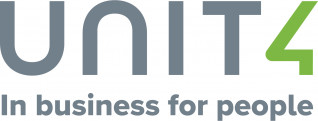Over the past few months we were out at a number of municipal conferences and events and it always surprises me to hear the number of folks who think municipalities are only able to procure goods or services via the RFP (Request for Proposal) process. They express their dislike for the process and they report the process discourages many small and medium enterprises from attempting to find work in municipalities.
No doubt, in the municipal sector procurement is a dynamic, sometimes complex process. However, what many are not aware of is that there is a variety of procurement methods available to municipalities to procure the goods and services they need.
The procurement of consulting and professional services still must be a competitive process but whether you’re a large company or a small or medium consultant or professional enterprise, it is still possible to acquire work in municipalities without ever needing to respond to a RFP.
In Ontario, Canada, municipalities must comply with the procurement requirements set out in the Municipal Act, 2001, S.O. 2001, Chapter 25, Section 270(1) 3. The legislation requires municipalities to develop policies to be adopted on the types of procurement processes that will be used, the goals of each, the circumstances under which each type will be used, and the circumstances where a tendering process is not required.
Here are some of the procurement methods municipalities can employ to procure goods and services.
- Request for Proposal (RFP) – used to solicit solutions for the delivery of complex goods, services or construction for obtaining unique proposals designed to meet broad outcomes to a complex problem or need for which there is no clear or single solution.
- Request for Tender (RFT) – used to acquire goods and services based on stated terms and conditions and for obtaining competitive bids based on precisely defined requirements for which a clear or single solution exists.
- Request for Quotation (RFQ) – is where the municipality specifies the product or service and the criteria is based solely on price. The goals are the same as for Request for Tender, except that bid solicitation is done primarily on an invitational basis from a pre-determined bidders list – but may be supplemented with public advertising of the procurement opportunity.
- Request for Expression of Interest (RFEI) – is a procurement used to determine the interest of the market place to provide goods or service(s) which the agency is contemplating purchasing.
- Request for Information (RFI) – is a request used as a general market research tool to determine what goods and services are available that may meet business/operational requirements and acquisition strategies.
- Request for Pre-Qualification (RFPQ) – is a procurement document used to solicit financial stability, technical information, product or service suitability from potential vendors and measured against stated evaluation criteria. Successful vendor(s) are pre-qualified or short listed to bid on specific categories of work or provide specific types of goods or services, or respond to a particular RFP or RFT
- Informal, Low Value Procurement – used to obtain competitive pricing for a one-time procurement in an expeditious and cost-effective manner through phone, fax, e-mail, other similar communication method, vendor advertisements or vendor catalogues.
- Non-Competitive Procurement/Invitational Competitive Procurement – in some circumstances, competitive procurements are not required. Municipalities can invite three or more qualified suppliers to submit written proposals to supply goods or services as specified by them. The goal is to allow for procurement in an efficient and timely manner without seeking competitive pricing.
Non-competitive procurement includes sole sourcing and single sourcing.
Sole sourcing is the procurement of goods or a service that is unique to a particular vendor and cannot be obtained from another source. Single sourcing is the procurement of goods or a service from a particular vendor rather than through solicitation of bids from other vendors who can also provide the same item.
Single sourcing may be the best course to take in some circumstances but it is important for the municipality to be transparent about what those circumstances will be.
Typically, non-competitive procurement is used in the following circumstances:
- when there is a statutory- or market-based monopoly on the item
- when no bids were received in a competitive process
- when the required item is covered by an exclusive right such as a patent, copyright or exclusive license
- when the purchase is already covered by a lease-purchase agreement where payments are partially or totally credited to the purchase
- when it is necessary to ensure compatibility with existing products or to avoid violating warranty/guarantee requirements when service is required
- when the required item is in short supply due to market conditions
- when competitive sourcing for low value procurement would be uneconomical or would not attract bids
- when competitive procurement may be found to be impractical for such items as meal expenses, incidental travel expenses (e.g. taxi service, phone calls), and training and education expenses
- when an urgent procurement is necessary for fulfilling a statutory order issued by a federal or provincial authority, such as an environmental, public health, or workplace safety compliance order.
To procure consulting and professional services in particular for larger more complicated projects, municipalities will still tend to use the RFP method. But for the smaller projects municipalities can, and do employ other procurement methods, such as the informal low value and non-competitive methods when possible.
Often they have no choice but to use these two methods to procure professional services because they simply cannot find enough consulting and professional enterprises to acquire the number of quotes they need to satisfy the requirements in their procurement by-laws and policies.
So, if you’re a consultant and/or a professional who would like to find work in municipalities – don’t give up. There are opportunities for you that do not involve wasting endless hours filling out an RFP only to find that on the 99th page of the 100 page document, there is one requirement you can’t meet.
Helping municipalities and professionals connect is the best way I know of to enhance the municipal procurement process and connect the municipalities and professionals that are trying to find each other.
Simple right?
Note: “In-Procurement”, a procurement magazine in the United Kingdom, published Susan’s article in 2016.
Susan Shannon is the Owner/Principal of www.muniSERV.ca. Her experiences as both a municipal Chief Administrative Officer (CAO) and as a municipal needs specialist prompted her to create muniSERV. Her passion continues to be to find ways to “Help Municipalities & Professionals Connect”. She can be reached at [email protected].








